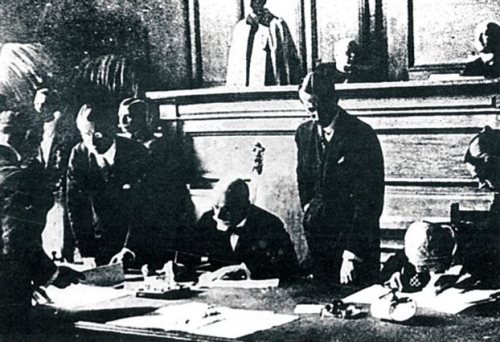An interesting lecture on the Treaty of Lausanne will be presented online by Markos Carelos, on Thursday 24 September, as a part of the Greek History and Culture Seminars offered by the Greek History and Culture Seminars offered by the Greek Community of Melbourne.
The focus of this presentation is the 1923 Treaty of Lausanne, viewed through the perspectives of two leading Greek contemporary critics of the treaty: Georgios Streit (1868–1948) and Emmanouel Emmanouelides (1867–1943).
It is a central contention of this presentation that the compulsory nature of the Treaty’s Convention Concerning the Exchange of Greek and Turkish Populations violated what in the 21st century would be regarded as inalienable human rights. Numerous instances of large-scale, systematic violence, targeting the Ottoman Empire’s non-Muslim minorities, which surged in the decade preceding the Empire’s dissolution — displacements, massacres and genocide — were implicitly endorsed by the Treaty of Lausanne.

By conferring interational recognition of these means and the resultant ethnically based nation states, the treaty exacerbated pre-existing chasms, not only across newly defined borders but also within Greek domestic politics and society. Tragically, therefore, the Treaty of Lausanne simultaneously heightened the need for ethnic conciliation but simultaneously impeded it.
Based on new archival research, the analysis of Streit’s and Emmanouelides’ perspectives, the presentation examines the two intellectuals’ activities and views in relation to the treaty, and thus calls its immediate aftermath and lasting legacy in question.

Markos P. Carelos received his Bachelors and Masters in History from the University of Zurich in Switzerland. Since 2017 he has been a PhD candidate at the University of Newcastle in Australia and the University of Zurich (cotutelle de thèse). Markos’ thesis is about the 1923 Treaty of Lausanne and Greek Political Thought.
Location: Zoom Webinar: https://bit.ly/2ZAqayQ
YouTube Live Stream: https://www.youtube.com/user/gocmv,
Facebook: https://www.facebook.com/Greekcommunitymelb/
Date: Thursday – 24 September 2020 @ 7:00pm


